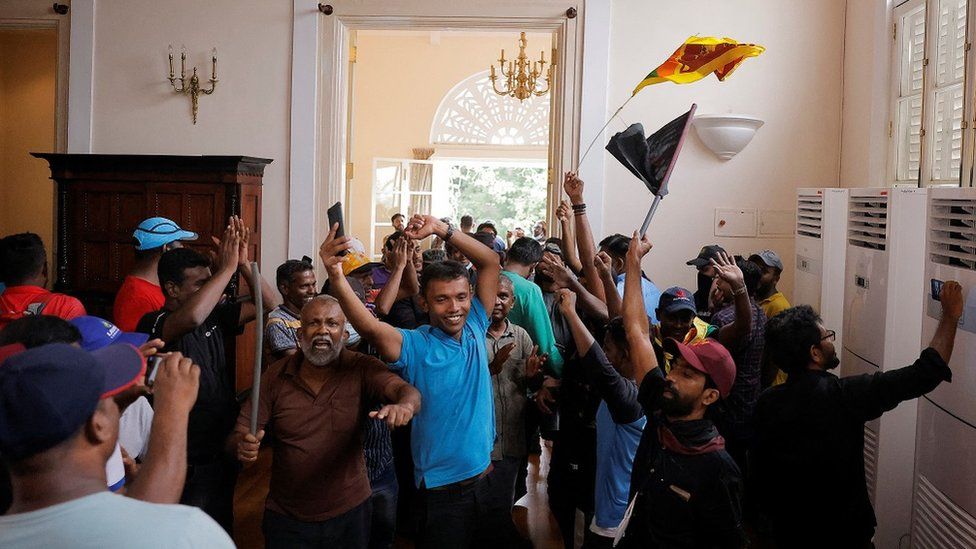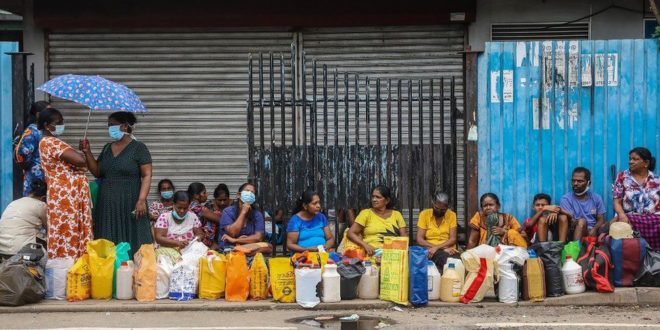Limited fuel and gas supplies have resumed in parts of Sri Lanka after a weekend of tumultuous anti-government protests over the economic crisis.
Long queues formed at filling stations and community centres across the capital, Colombo, on Monday, thronged by thousands of weary residents.
Fresh supplies came as a relief for a city on edge after months of shortages of fuel, food and other basics.
The financial crisis is the worst the country has seen since independence.
Rampant inflation has made prices soar and the country’s foreign currency reserves have all but run out, leaving it struggling to import food, fuel and medicine.
Anger and frustration boiled over at the weekend. Tens of thousands of protesters stormed President Gotabaya Rajapaksa’s official residence in Colombo on Saturday, after months of protests over his handling of the economy.
Crowds also burned down the private residence of Prime Minister Ranil Wickremesinghe. Neither man was in the buildings when they were stormed.
 IMAGE SOURCE,REUTERS
IMAGE SOURCE,REUTERSIn the Slave Island district of Colombo on Monday, hundreds of people waited for tokens they could redeem for cooking gas. An endless line of empty blue gas cylinders wrapped around several tree-lined blocks of apartments. Those at the start of the queue had been waiting for hours.
Perched on her gas cylinder, P Selvi Kalachelvi fished out a plastic bag of rotis or flour pancakes from her handbag. It was the only thing she was eating that day.
“I’ve gone six months without cooking gas now. I once waited for four days for kerosene and I still didn’t get anything,” she told the BBC. “Everyone is suffering, what can we do?”
Cooking gas has been scarce for months, while many petrol stations had halted sales to ordinary people two weeks ago to conserve fuel for essential vehicles, bringing much of the country to a standstill.
Many of those waiting in line were women, desperate to get kerosene to cook their families’ meals after months of relying on chopped wood to light their fires, which they found expensive and impractical.
Coupled with the soaring prices of food – some residents said the cost of chicken and beef had quadrupled since the start of the crisis – it’s led most people to cut back on meals, eating only twice a day and cooking flour and vegetable dishes. Meat and fish have not been on the menu for months.
bbc
 Home Of Ghana News Ghana News, Entertainment And More
Home Of Ghana News Ghana News, Entertainment And More




